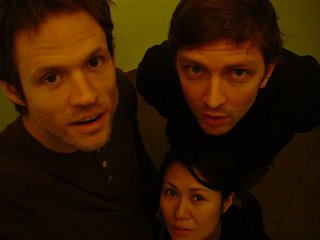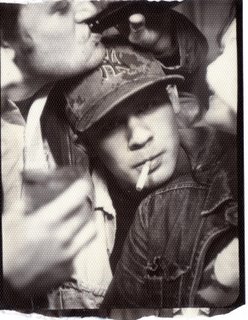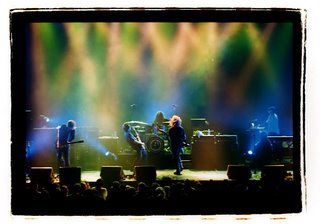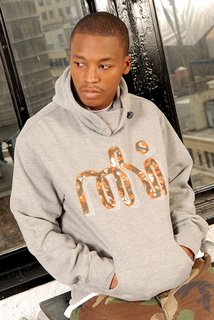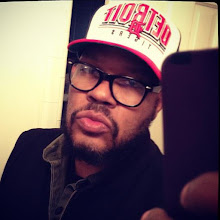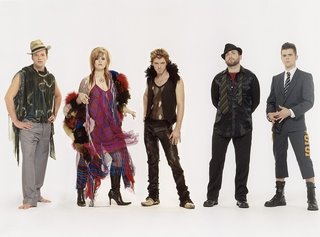
“Have you heard the band Hellogoodbye yet? A friend just gave me the CD, and I can’t tell if it’s wonderful or really terrible. But I just love it. The single sounds like Eiffel 65 with robo-Cher vocals and everything. The best part is that it’s completely unashamed. They’re my favorite band right now.”
Jake Spears, lead singer and songwriter for New York disco-pop sensations Scissor Sisters is on a break from filming the video for “Land of a Thousand Words,” the second single off their hotly anticipated sophomore album, appropriately titled
Ta-Dah. His unabashed enthusiasm for the goofy Southern California power pop combo HelloGoodbye (fresh from the dubious notoriety of being featured on MTV’s
The Real World: Austin) and their spastic song “Touchdown Turnaround” is endearing. It’s also an apt metaphor for the Scissor Sisters themselves.
For more than 30 years, we’ve heard countless bands shamelessly pay tribute to rock icons of the ’70s like Led Zeppelin and Aerosmith. The Scissor Sisters defiantly flaunt inspirations from the flipside of that decade’s
other biggest acts, like Abba, the Bee Gees and Elton John. Insanely catchy choruses, throbbing, beat-heavy production, and gleefully flamboyant imagery have served the Scissor Sisters well.
First shaking the scene with their inspired dance-floor rework of Pink Floyd classic “Comfortably Numb” (lauded by none less than Floyd’s own David Gilmour and Roger Waters), they went on to sell more than 300,000 copies of their eponymous debut album in America to an impressively panoramic fan base.
“TV really helped us out here in America,” Shears admits. “We played
Saturday Night Live, and sold a bunch of albums to cool people in their twenties. But then we did
Regis and Kelly, and suddenly soccer moms were getting into us, too. Still, there were certain big shows that simply refused to have us on, for whatever reason. I won’t name any names, but I will say that there are people in power positions here that won’t give us the same chances that we had in the UK.”
In the UK, that same debut album exploded, going on to become the best-selling album of 2004. The band’s first show on British soil was opening for Duran Duran at the massive Wembley Arena. Elton John became one of their biggest cheerleaders, and soon they were sweeping the top honors at the 2005 Brit Awards (think the English Grammys) and opening shows for U2.
“The UK is just more open to art. It’s a part of everyday living,” theorizes singer Ana Matronic, who saunters into the conversation for some relief of “having so many hands in my face all day” during the day’s video shoot. “I feel like our success over there was based on so many people seeing us live and loving it. It’s in concert that we really make sense. To them, we’re like a return to a certain era of glamour. And they love a good pop tune.”
With such success, of course, comes the pressure and heightened expectations to maintain the upward trajectory. There are plenty of acts that made a big splash with their debuts, only to buckle under the stress of the second album. Such anxieties were hardly lost on Spears.
“It’s a very scary thing, making a record following something as successful as the first album. You can’t help but always compare,” he’s quick to admit. “Suddenly, there’s so much at stake. I have passion for performing and making music; I love it and it’s my livelihood. The thought of that ever being taken away is really horrifying, and it’s a sensation that sort of stayed with me. It took us a year to write this record, which is a really long time. And that’s for no lack of working. We were in the studio every day.”
When that period of “songwriting frustration” threatened to overwhelm Spears, the antidote came in the form of a lucid dream starring… Paul McCartney?
“I have really vivid dreams, and I always take note of them. I had this dream one night about (McCartney), where we had a conversation about songwriting that was something of an epiphany. I wrote down what he’d said to me as soon as I woke up. I was really inspired, and we wrote the song that day,” he explains of the high-energy dance track they named after the former Beatle. “It’s about inspiration, and the telepathic power between a creative person and whoever’s on the other end receiving it. There’s a kind of telepathic relation that happens when you read a book or listen to a song. It’s a long chain that never stops.”
McCartney’s advice seems to have paid off.
Ta-Dah is a fleshed-out realization of their debut’s promise, rife with upbeat rug burners and more introspective, melancholy moments. It’s hard to deny the instant appeal of tunes like first single “Don’t Feel Like Dancin’,” a hook-laden stomp of piano-powered mega-pop co-written with none less than Elton John himself.
“Deep down in our hearts, we wanted to make a great pop song together,” says Spears of working with John. “When we got it, we knew it. But it took us a while to get there. It wasn’t like we just banged it out. We really had to work at it.”
“Elton is one of those special people,” adds Matronic. “Music just pours through him. Working with someone like him was crazy and amazing, but everything that’s happened to this band so far as been crazy and amazing, so we just went with it.”
“The album is about expectations, what we expect out of life, and never taking those things or the people around you for granted,” Spears muses when asked about the new album’s deeper meanings. “There was a lot of love on the record, but there was a lot of death around us, too. My sweet aunt Hilda and my best friend in the whole world both died while we were recording, and one of (guitarist) Del’s best friends died, too. It was a pretty heavy period for us. You give up big parts of your life to do this, but you do it anyway because it’s so fulfilling. That’s kind of where the title comes from, saying ‘this is it.’ It’s very kind of depressing, but really beautiful at the same time. I think those tragic moments are very integral to music.
“I love this record, but I’m not satisfied by it,” he says finally. “But I’m never satisfied. I wasn’t satisfied with the first album. I always thought it was a partial piece of crap. I’m a really harsh critic, but I think you’ve gotta be if you’re doing this and want to make something that people think is great. I gave my all to it, but I plan on making better records in the future. To me,
Ta-Dah sounds like a record by a band that’s got a future.”
(Originally published as a cover story for
BPM Magazine, Winter 2006)


